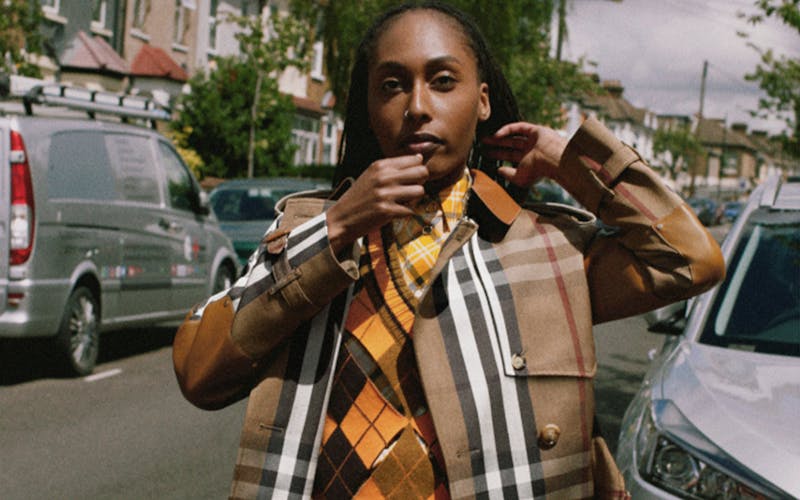

for Walpole members and
non-members available now
at The Londoner



Historically, luxury and sustainability weren't just strange bedfellows — they were seen as being fully incompatible. After all, how could a movement driven by modest consumption and frugality sit comfortably alongside the more decadent trappings of life? Fortunately, that perspective can now be discarded. Just make sure you choose the correct bin.
From LVMH’s LIFE initiative to Selfridges Project Earth, high-end brands aren’t just embracing sustainable business practices, they’re choosing transparency, visibility, and inviting their buying public to hold them to account by publishing targets, roadmaps, and mission statements.
It shouldn’t come as any surprise either: Millennial and Gen Z audiences were responsible for 100% of the growth in the luxury sector in 2019. These are the same audiences for whom sustainability — and ethical operation in general — are the most important factors when making purchases. They’re also responsible for over 40% of all luxury spending.
Luxury brands and sustainability might seem like the odd couple, but they actually go hand in hand.
The luxury sector and sustainable practice have the same audience so, if you want to drive growth, it needs to be part of your brand and marketing mix. But how do you do it right? We’re going to take a look at the ways you can engage your brand to connect with a conscious-consumer audience.
First things first: make sure your heart’s in the right place.
According to the Deloitte 2020 Millennial Survey, only 41% of Millennials believed business had a positive impact on the world and society, down from 76% in 2017. One of the reasons for this declining trust? Greenwashing.
Greenwashing is the performative act of pretending to prioritise sustainable business practices, when profit is still the clear motivation. It’s inauthentic and, in an age of decreasing brand trust, opens your brand up for serious criticism.
When McDonald’s replaced their recyclable plastic straws with paper in 2019, and it was discovered that those paper straws weren’t recyclable, the backlash was global. Similarly, when Shell asked Twitter what we could all do to reduce emissions, they received a torrent of anger from an audience ready to point out that Shell’s environmental impact needed addressing long before any individuals could make a difference.
These examples, and many others, share a common goal: not to do good, but to appear to do good. So before you make any strategic sustainability moves, do your due diligence.
Make the extra phone call, ask suppliers and partners about their credentials, and discover any potentially disastrous issues before your audience do.
If your priority is to actually do good, both your business and the planet will reap the benefits.
You already share principles, so let’s start talking about them
Luxury brands and modern sustainability have a lot in common.
Ethically produced and luxury products are typically more expensive, higher quality, and don’t engage with labour exploitation. With that care and dedication comes heritage, pride and hope — and a story people want to hear.
Additionally, both ethical consumers and boutique brands see themselves as antithetical to global megacorporations. You can start to see how your business can appeal to this audience without implementing any new activity. Better still, you’re also well-positioned to react quickly compared to those multinational monoliths, trading bureaucracy for effective action.
So, if you’re proud of what you’re doing, be transparent. It may seem a little gauche to promote yourself like this, but transparency and sustainability are inseparable. If someone isn’t talking about the good they’re doing, we simply don’t assume they’re doing any at all.
The trick to sustainability is transparency. Be honest about your past and ambitious about your future.
Even if you don’t believe everything you do is ideal yet, you can still talk about it. Consult with your marketing agency to produce a public-facing roadmap for change, and demonstrate real commitment. After all, sustainability is a process of change, adaptation and improvement, and there’s genuine value in displaying that.
As your business’s sustainability journey begins, focus on aspirational, encouraging data, like the adoption rate of new sustainable products or the growth of the sector within your organisation.
Something to bear in mind: when you’re crafting new stories and product offerings, it’s crucial to support your statements. The Competition and Markets Authority’s 2021 report found that more than 40% of brands’ environmental claims could be misleading.
If you’d like to be sure that you’re not in bad company, The Provenance Framework offers excellent guidance to make sure that your messaging is completely above board — and you can use logos and affiliations legitimately. Covering standards from sustainability of materials to community support and ethical employment, it’s the perfect place to start.
Climate is changing. Your audience is changing. Perhaps you should too.
Building a luxury brand synonymous with sustainability takes innovation. It’s a sector revolutionised by fringe players, with wider industry players following suit and laggards drifting toward obscurity.
Before that fate becomes yours, you need to challenge your organisation to change. To find opportunities to create valuable, sustainable product offerings. To reframe your mission to connect with a more conscientious audience.
Lean on your marketing agency or team to turn sustainability into a selling point.
Do you offer recyclable packaging? If not, is your prestige packaging intended to be kept forever, passed from generation to generation? Do you use the popular premium packaging finishes that feel silky to the touch but will remain undegraded in landfill for hundreds of years?
Whatever the answer, you must be ready to be challenged. And unless you feel that you’re already doing a perfect job, you should want to be challenged.
One of the easiest ways to do this is by engaging your marketing agency or in-house team. Brief them to take an unbiased look at your company’s sustainability credentials, from product development to manufacturing to messaging.
Not only will they uncover vital insight and research, you’ll benefit from the learnings of every business they deal with when it comes to sustainability. After a single workshop, you’ll be surprised to not only learn what you still have to do, but what you may have already done without knowing it.
Need help communicating your sustainability efforts? Contact Woven today to discover how they can help you can lead the way.





